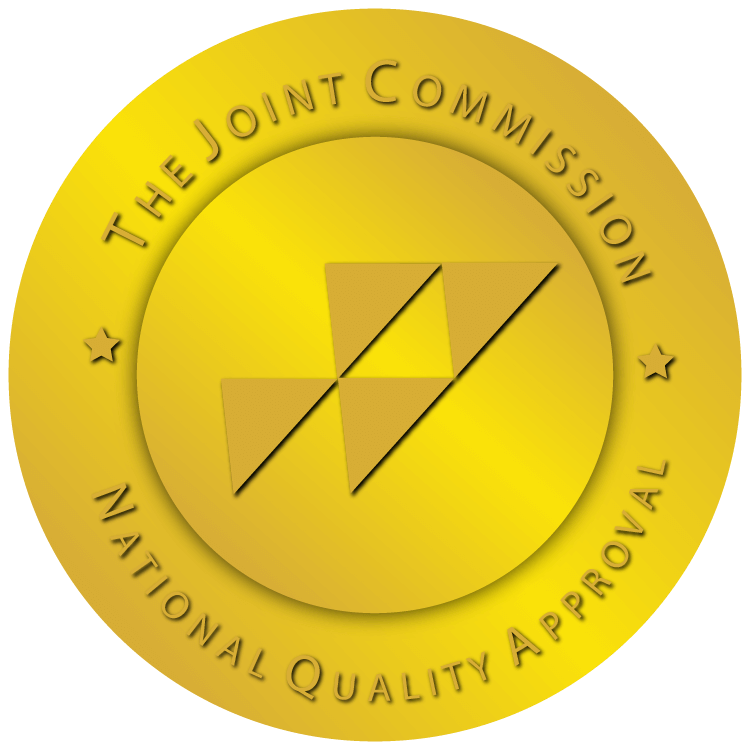If you need to deal with strong emotions, tough situations, and painful habits, such as using drugs or alcohol to cope, Dialectical Behavior Therapy (DBT) could be the support you’ve been looking for.
Many people, including those recovering from addiction, have found real healing through this approach. It’s especially helpful if you’ve tried other therapies that didn’t quite fit or if you’re ready to learn new tools to face life differently.
See how DBT supports your recovery.

What Is Dialectical Behavior Therapy (DBT)?
DBT is a type of behavioral therapy. That means it helps you understand how your thoughts, feelings, and actions are connected, and how you can change them in helpful ways.
DBT was first created by a psychologist named Dr. Marsha Linehan. She wanted to help people who felt overwhelmed by strong emotions and who struggled to cope with everyday life. Over time, DBT has been used to help many people, including those dealing with drug or alcohol addiction, depression, anxiety, and other emotional challenges.
The main idea behind DBT is balance. It teaches you how to accept who you are while also working to change damaging behaviors. That’s why it’s called dialectical. It brings together two opposite ideas: acceptance and change.
In DBT, you learn practical skills in four main areas:
- Mindfulness – how to stay present in the moment
- Distress tolerance – how to get through tough times without making things worse
- Emotion regulation – how to understand and manage strong feelings
- Interpersonal effectiveness – how to build healthier relationships
You’ll work with a therapist in one-on-one sessions and also attend group sessions. In both settings, your therapist will guide you in a kind and nonjudgmental way. DBT focuses on acceptance, compassion, and staying aware of your thoughts and feelings. You’ll be encouraged to use mindfulness, not just in theory, but in real, everyday situations.
What Makes DBT Different From Cognitive Behavioral Therapy (CBT)?
DBT is derived from CBT. Both are types of talk therapy, and both aim to help you feel better by changing the way you think and act. But they don’t do it the same way.
CBT helps you notice negative thoughts like “I’m a failure” and replace them with more balanced ones, which can ease anxiety or depression. But if you feel emotions deeply or have been through a lot, being advised to shift your thoughts into “productive” mode can sometimes feel invalidating.
That’s where DBT is different.
In DBT, your therapist doesn’t just focus on changing your thoughts. First, they work to validate your feelings. That means they listen to you and say, “It makes sense that you feel this way, given what you’ve been through.” Even if they don’t agree with the thought itself, they respect that your feelings are real.
This kind of respect is a big part of DBT. It works well for people suffering from mental health problems, such as:
- Borderline personality disorder (BPD)
- Self-harm
- Suicidal thoughts or actions
- Post-traumatic stress disorder (PTSD)
- Substance use problems
- Eating disorders like binge eating and bulimia
- Depression
- Anxiety
You can be doing your best right now and still have room to grow. One of the most common DBT phrases is: “I’m doing the best I can, and I want to do better.”
How DBT Supports Addiction Recovery
DBT can support you in overcoming addiction through the following:
1. Managing Strong Emotions
If you often feel overwhelmed by intense emotions, you might turn to drugs or alcohol to cope. DBT helps you understand and regulate these feelings. Research shows that learning DBT skills can reduce substance use by improving your ability to handle emotions.1
2. Handling Stress Without Substances
DBT teaches distress tolerance skills, which are tools to help you get through tough situations without using substances. By practicing these skills, you can face challenges without resorting to drugs or alcohol.2
3. Building Better Relationships
Struggles in relationships can lead to substance use. DBT focuses on interpersonal effectiveness, helping you communicate more clearly and set healthy boundaries. This can reduce conflicts and the urge to use substances as a coping mechanism.3
4. Accepting Yourself While Making Changes
A key part of DBT is learning to accept yourself as you are, while also working towards positive change. This balance can help you stay motivated in your recovery journey.
Is DBT Right for You?
DBT can help if life feels overwhelming or if you’ve tried other kinds of therapy and nothing seemed to work. For example, many military veterans have found DBT useful when dealing with intense emotions and the challenges that come after service.4
Here are a few signs that DBT is a good choice for you:
- You struggle with intense emotions
If you often feel like your emotions are just too much, maybe you get irate, glum, or hopeless quickly. DBT can teach you how to calm those feelings and feel more in control. - You use substances to cope with stress or pain
If you turn to drugs or alcohol to try to feel better or escape your problems, DBT can help you find safer, healthier ways to handle that pain and stress without needing to numb it. - You have a hard time with relationships
Maybe you find it tough to trust people, set boundaries, or feel close to others without getting hurt. DBT teaches you how to speak up for yourself, say no without guilt, and healthily connect with others. - You want to learn better ways to handle life’s challenges
Life throws hard things at everyone. But if you feel like you’re stuck or you always react in ways you don’t like, DBT can give you practical tools to respond better, think clearly, and feel more confident in tough moments.
If any of this sounds like you, it might be a good time to talk to a mental health professional. They can help you figure out if DBT is the right kind of support for your healing and recovery journey. There’s help, and DBT might be one way forward.
Finding DBT-Based Treatment Programs
DBT is a special kind of therapy that works best when you get support from trained therapists who understand how to teach you the skills you need.
Many treatment centers offer DBT as part of their mental health or addiction recovery programs. You can find DBT in places that provide both individual and group therapy sessions, because practicing these skills with others can help you learn and grow.
When looking for a program, you want to find one that feels safe and welcoming, where the therapists listen to you without judgment and help you feel understood. It’s okay to ask questions about how they use DBT and what kind of support you’ll get along the way.
Get Help Today
If you need help getting started, OceanRock Health and South Coast Counseling offer treatment programs that include DBT, especially for people recovering from substance use or emotional struggles. Our team can guide you step by step, making sure you feel supported, and will work with you personally and in groups.

Sources:
- Cavicchioli, M., Ramella, P., Vassena, G., Simone, G., Prudenziati, F., Sirtori, F., Movalli, M., & Maffei, C. (2020). Dialectical behaviour therapy skills training for the treatment of addictive behaviours among individuals with alcohol use disorder: the effect of emotion regulation and experiential avoidance. The American Journal of Drug and Alcohol Abuse, 46(3), 368–384. https://doi.org/10.1080/00952990.2020.1712411
- Basereh, S., Safarzadeh, S., & Hooman, F. (2022). The Effectiveness of Group Dialectical Behavior Therapy and Structured Matrix Treatment on Quit Addiction Self-efficacy, Distress Tolerance, and Mindfulness in Individuals with Stimulant Drug Abuse. Journal of Health Reports and Technology, 8(4). https://doi.org/10.5812/jhrt-127427
- BİLİCAN, F. I., ÇETİNKAYA, M., ÇELEBİ, E., GÜLEN, B., & BARHAM, H. (2022). A Pilot Study of Dialectical Behavioral Therapy Group Skills Training in Patients with Substance Use Disorder: Changes in Substance Use Severity, Mood and Relationship Skills. Bağımlılık Dergisi, 23(3), 327–337. https://doi.org/10.51982/bagimli.1022854
- Edwards, E. R., Epshteyn, G., Snyder, S., Gorman, D., Coolidge, B., Marcano, E., Tsai, J., & Goodman, M. (2023). Dialectical behavior therapy for justice-involved veterans: Changes in treatment targets in a small, pre–postdesign clinical trial. Psychological Services. https://doi.org/10.1037/ser0000766












